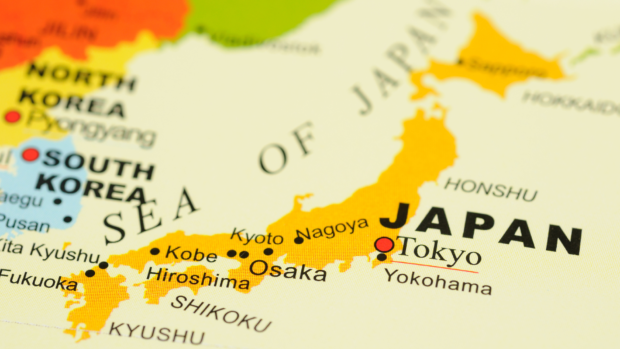
Japan map | STOCK PHOTO
MANILA, Philippines — Japan reaffirmed on Tuesday its opposition to “attempts to change the status quo by force” in the South and East China Sea.
Principal Deputy Director Hideki Yazawa of the Japan Foreign Ministry’s Asian and Oceanian Affairs Bureau said in an online briefing on his country’s activities to mark 50 years of cooperation with the Association of Southeast Asian Nations (Asean).
“Japan always takes very [seriously] the attempts to change the status quo by force in the South China Sea or East China Sea or anywhere in the world. So we look at it very carefully, but for the moment, we don’t have concrete parts of the program for this area,” he said.
Japan is involved in a territorial tug-of-war with China over East China Sea islets.
Yazawa stressed that Japan “opposes, always, any attempt to change the status quo” in the disputed territories.
Still, he said, Japan would continue forging good relations with the Asean as it works towards the “security and prosperity of Asia and the world.”
“Japan always cooperates with the US, of course, because the US is Japan’s ally to maintain the stability and the prosperity of Asia,” Yazawa added.
PH mulling trilateral defense pact
The Philippines is in a similar situation, protesting incursions by China into the West Philippine Sea while counting on the support of the US, with which it has a Mutual Defense Treaty and an Enhanced Defense Cooperation Agreement.
Currently, the Philippines is considering forming a trilateral agreement with the US and Japan.
A Pulse Asia Survey in 2022 found that the majority of Filipinos want the administration of President Ferdinand Marcos Jr. to work with the US and Japan to “strengthen security cooperation to defend our national sovereignty in the West Philippine Sea.”
‘Concerned’ about Myanmar crisis
Asked about how Japan will involve itself in addressing the escalating crisis in Myanmar, Yazawa said his government views the situation of the embattled country “very seriously and with great concern.”
“Japan is concerned about the situation in Myanmar but at the same time, we respect the Asean decision and want to communicate with the Asean members, especially with the chair — that would be Indonesia this year — to manage this issue and communicate with other countries, as it was last year,” he said.
Myanmar has been gripped by political, social, and economic upheaval after its military toppled an elected government led by Aung San Suu Kyi in 2021.
Asean members have called for Myanmar’s military junta to honor its commitment to implement the five-point peace consensus in a bid to end the conflict in the country.